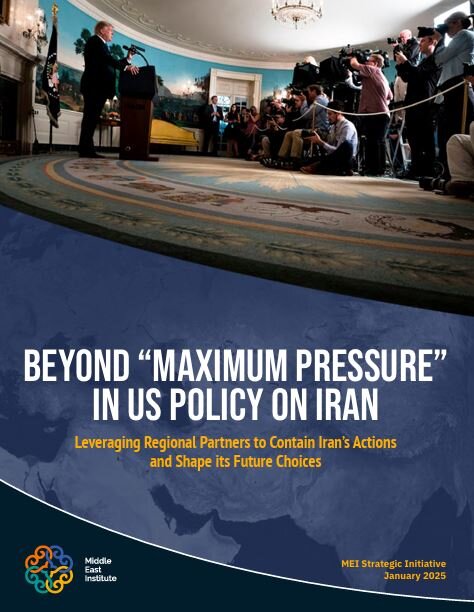INSUBCONTINENT EXCLUSIVE:
whom are affiliated with the think tank.The Iran-United States relationship has become highly strained, especially following President
Donald Trump's recent reinstatement of "maximum pressure" on Tehran and his warmongering rhetoric against Iran, one of the world's
oldest civilizations.Lacking a background in politics or studies in geopolitics and history, Trump is said to rely significantly on his
advisors for policy decisions, many of whom come from think tanks like MEI, raising the importance of such reports.In a world shifting
toward multipolarity, this report not only misrepresents Iran's strategic role but also acts as a platform for vested interests that have
long influenced discussions on West Asian policy.The MEI report claims that Iran is in its "weakest and most isolated position since 1979,"
struggling under "unprecedented pressure" to maintain its regional influence.It advocates for a renewed "maximum pressure" strategy,
suggesting that the United States leverage regional allies to "redraw the geostrategic realities of the Middle East [West Asia]."Among the
recommendations are militarized alliances, diplomatic isolation, and interference in Iran's domestic affairs, which may have dangerously
mischaracterization.It blatantly overlooks Iran's recent diplomatic wins, such as the 2023 Saudi-Iran normalization agreement, which
restored ties with a key regional player and highlighted Tehran's adept maneuvering in complex geopolitical landscapes.Furthermore, Iran's
accession to the Shanghai Cooperation Organization (SCO) and BRICS in 2023 underscores its significant role in a multipolar world order,
countering United States -backed destabilization efforts, ranging from Yemen to Lebanon.The recent Israeli-Western narrative framing Iran as
"weak" is a calculated and sinister ploy to manipulate Western decision-makers.This portrayal goes beyond advocating for increased pressure;
it subtly paves the way for military aggression and potential bombing campaigns, aiming to destabilize Iran further and undermine its
legitimate security concerns in a region already fraught with Western-induced chaos.Such rhetoric dangerously escalates tensions, serving
stability.The United States has played a prominent role as an arms supplier to countries in West Asia, highlighted by significant
agreements such as the over $37 billion in Foreign Military Sales (FMS) contracts with Saudi Arabia from 2016 to 2020, making it the top
customer and accounting for 24% of United States arms exports.In 2020, the UAE secured a $23 billion deal for F-35 jets, alongside $9.4
billion in FMS agreements during the same timeframe, while Qatar received $15.9 billion in military sales.If Trump's first term serves as
an indicator, these kinds of arms sales are likely to persist during his current administration.However, these transactions have not
fostered peace but have instead escalated regional tensions, notably contributing to conflicts like the devastating war in Yemen.This
ongoing arms trade has significantly benefited the United States Military Industrial Complex, promoting conflict over stability in the
region.Conversely, Iran's de-escalation efforts, exemplified by the Chinese-backed Saudi reproachment and its participation in Persian
alignment with bellicose actors seeking to scapegoat Iran for Western policy failures.Flawed policy recommendationsThe recommendation for a
financial disclosures revealed significant contributions from the UAE Embassy ($1.775 million), and the United States State Department
($118,000), as well as substantial donations from the embassies of Qatar ($770,000) and Saudi Arabia ($50,000).Additionally, major oil
companies, including Aramco Americas ($200,000), Chevron Corporation ($60,000), ExxonMobil ($40,000), and BP ($30,000), have also provided
large sums, raising concerns about the institute's impartiality.These donors have vested interests in promoting regime-change narratives
prices, leading to higher share prices for major oil companies that finance the MEI.The recent report from the think tank reflects outdated
hawkish United States policies that have unsettled West Asia for decades.It exemplifies how Western think tanks and policymakers, even
after 46 years, still fail to grasp the core message of Iran's Islamic Revolution: that self-sufficiency and independence are essential
a roadmap for escalation instead of peace.Unfortunately, this outdated, donor-driven perspective remains widely prevalent in Washington,

